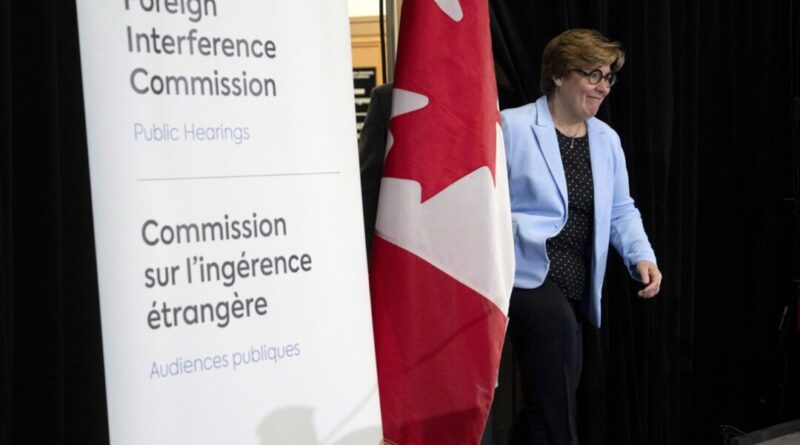CSIS Warrant Delay Involving Ontario Politician Sparks Controversy in Final Submissions to Hogue Commission
The federal government states in its final submission to the Foreign Interference Commission that there was no political interference causing the delay of a surveillance warrant on an Ontario politician. Other participants argue that no other explanation is viable.
They wrote, “The significant delay in authorizing the politically-sensitive Chan warrant compared to two other warrants—taking 4 days and 8 days respectively—illustrates the abnormality of the Chan warrant process.”
Although the subject of the warrant was not discussed in the recent phase of public hearings, Blair did not contest in the previous phase that it pertained to Ontario politician Michael Chan.
The delay in the warrant application occurred between Blair’s then-chief of staff, Zita Astravas, and its timely arrival on Blair’s desk.
Conservative Party lawyers argued that it is the commission’s responsibility to unravel the “mystery” and that the answer is evident.
They added, “Upon receiving the warrant application—along with the Vanweenan list—Ms. Astravas recognized that surveillance of high-ranking Liberals by CSIS was imminent and that the revelations from this surveillance could be detrimental to the Liberals.”
The Vanweenan list contains names of individuals whose conversations may be incidentally monitored due to their association with the investigation subject. Astravas had requested a meeting with CSIS to discuss this matter, the commission heard.
‘No Evidence’
They wrote, “There is no proof of political interference or any misconduct by those involved in approving the application by the former Minister of Public Safety,” stating that the approval time for warrants varies for each application.
They also mentioned Astravas’s testimony regarding the complex circumstances during that period due to COVID-19. Blair, working from Toronto, had to visit the local CSIS office to review warrant applications.
The government clarified that the CSIS director and the public safety deputy minister did not express concerns about the warrant’s approval timeframe.
The lawyers affirmed that Blair approved the warrant promptly upon receiving it. They wrote, “It is entirely reasonable and consistent with the evidence that the Chief of Staff did not prioritize a warrant that was not flagged as urgent by the CSIS Director.”
‘Very Frustrated’
Other evidence before the commission revealed that the delay caused dissatisfaction within the security sector.
Former CSIS deputy director of operations Michelle Tessier stated at the inquiry that the delay frustrated CSIS operational staff.
A report from within CSIS mentioned an official involved in the warrant process fearing that the application might not be approved by the Minister after a meeting with Astravas.
Rob Stewart, the former deputy public safety minister who swiftly approved the warrant, remarked, “It would have taken CSIS some time to gain the Minister and his staff’s confidence in this warrant.”
They wrote, “This sensitivity likely explains the unusual delay in warrant authorization,” pointing out Astravas’s past association with the Wynne government when Chan was a cabinet minister.
NDP MP Jenny Kwan’s lawyers also raised concerns about the delayed warrant approval at the inquiry. They recommended that the commission make factual determinations to address these concerns.





